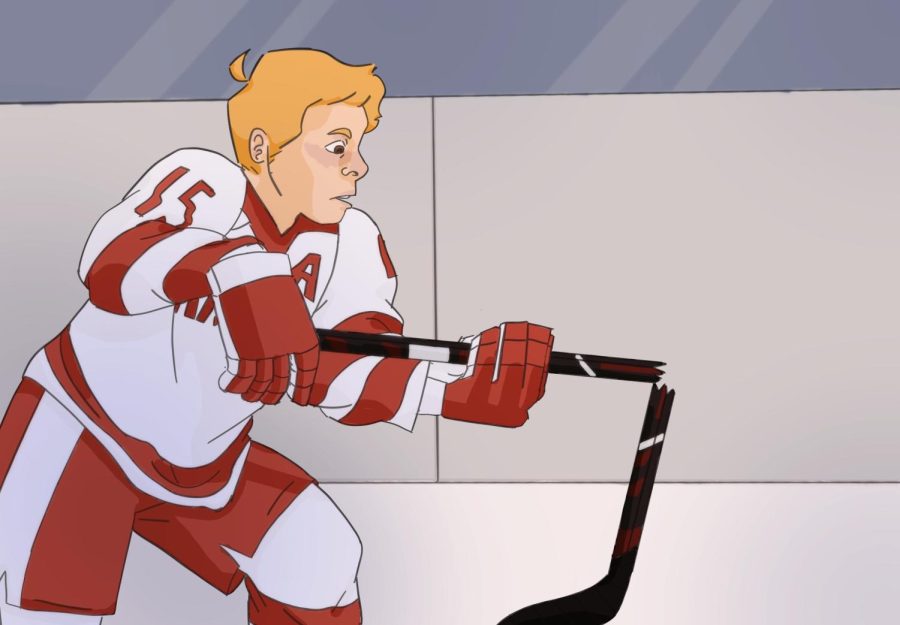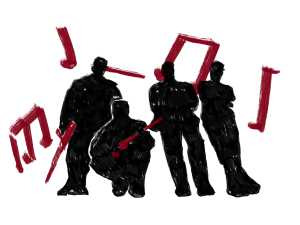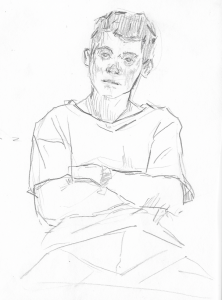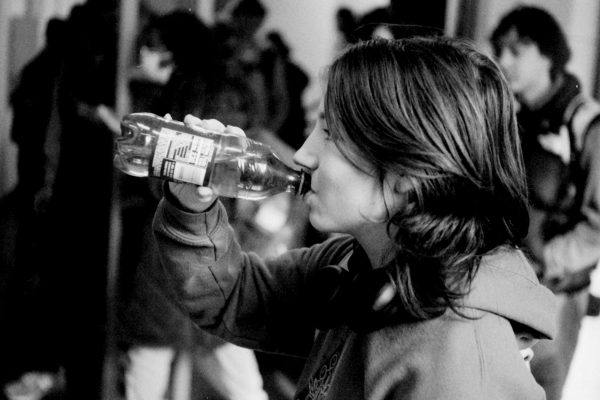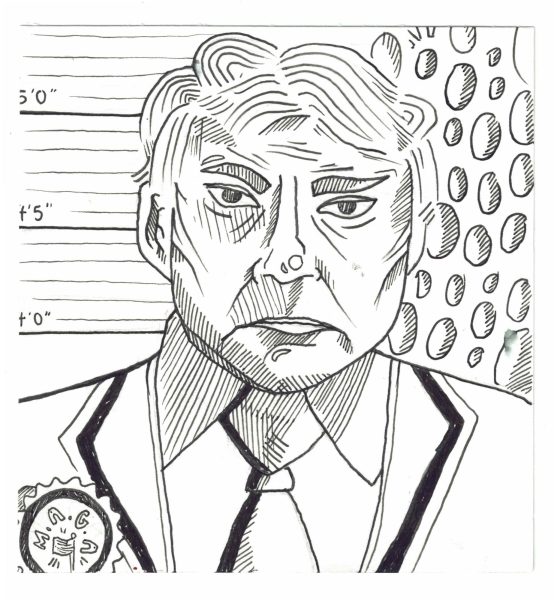Check, Please! Misses the Net
1/5 Falcons
November 8, 2022
The 2013 comic Check, Please!, written and illustrated by Ngozi Ukazu, shoots and misses. The webcomic, and later physical book, follows Eric Bittle, a figure skater from the South who is recruited to play hockey at a prestigious university. The suspension of disbelief required for readers to assume that a university will accept a figure skater who has two years of club hockey experience is astronomical. There, he meets a cast of wacky characters, including disgraced player Jack Zimmerman. However, this plot falls apart with a closer look.
Despite what the book seems to suggest, Eric is not a Southern misfit. He is a gay stereotype in the worst way—he’s wimpy, feminine, and twinky. These stereotypes often end up being the butt of the jokes, including an entire chapter about how crazy it is that a man likes to bake. A story about a queer man dealing with misogynistic and homophobic hockey culture could’ve been interesting. Instead, it’s a trifling joke where Eric is just so different and feminine compared to everyone else. [Check, Please!] is in no way representative of gay men, hockey players, or gay hockey players.
Eventually, readers meet Jack. He is the son of a Wayne Gretzky-esque hockey legend who struggles with anxiety due to the pressure of his father. We learn that he either accidentally overdosed on meds or deliberately attempted to take his own life. As this information comes after fun and quirky facts, the tonal whiplash is shocking. Eventually, Jack and Eric begin an ill-advised romance. Unfortunately, Jack has a more interesting story than Eric himself. Imagine following someone who is trying to both ignore and live up to his father’s reputation, who is trying to prove himself at a small university, who is gay or bisexual in an unforgiving sport, and who has struggled in the past with debilitating anxiety; instead of a man whose most distinguishing characteristic is that he’s short.
The book unfortunately falls into many age-old tropes and fetishizations of gay relationships. Across queer media, especially gay media written by women, a commonly found relationship has time and time again been a tall, stoic, and often dark-haired man paired with a traditionally more feminine, naive, and often light-haired man. The popularity of these kinds of relationships is so widely consumed that women-written gay stories often overshadow ones written by actual gay men. These relationships force heteronormativity onto queer relationships. While this book is marketed as an amazing representation of men, it instead takes a step back and forces the characters into straight expectations of what romantic relationships and dynamics look like.
Check, Please! is in no way representative of gay men, hockey players, or gay hockey players. It doesn’t deserve the widespread, easily influenced audience it earned through peddling homophobic tropes. A story with so much potential that fails through tired stereotypes and bad jokes.
This piece also appears in our October 2022 print edition.

